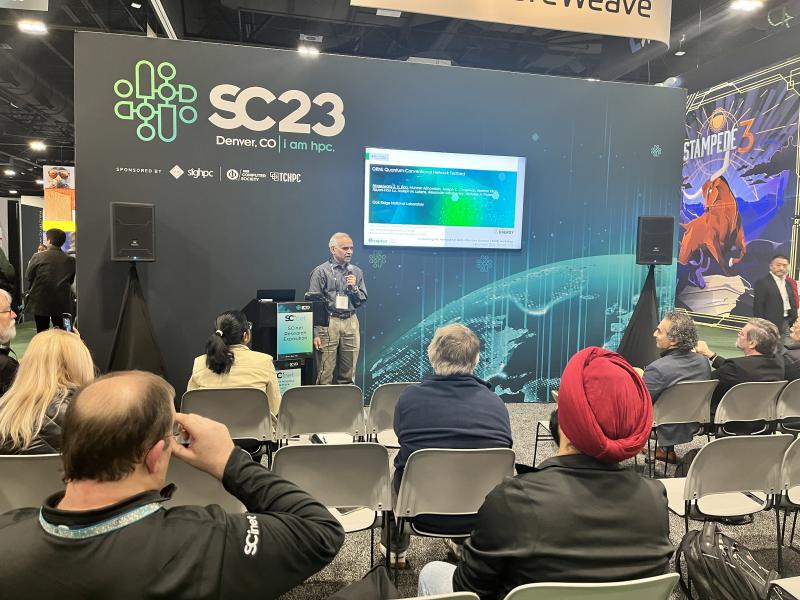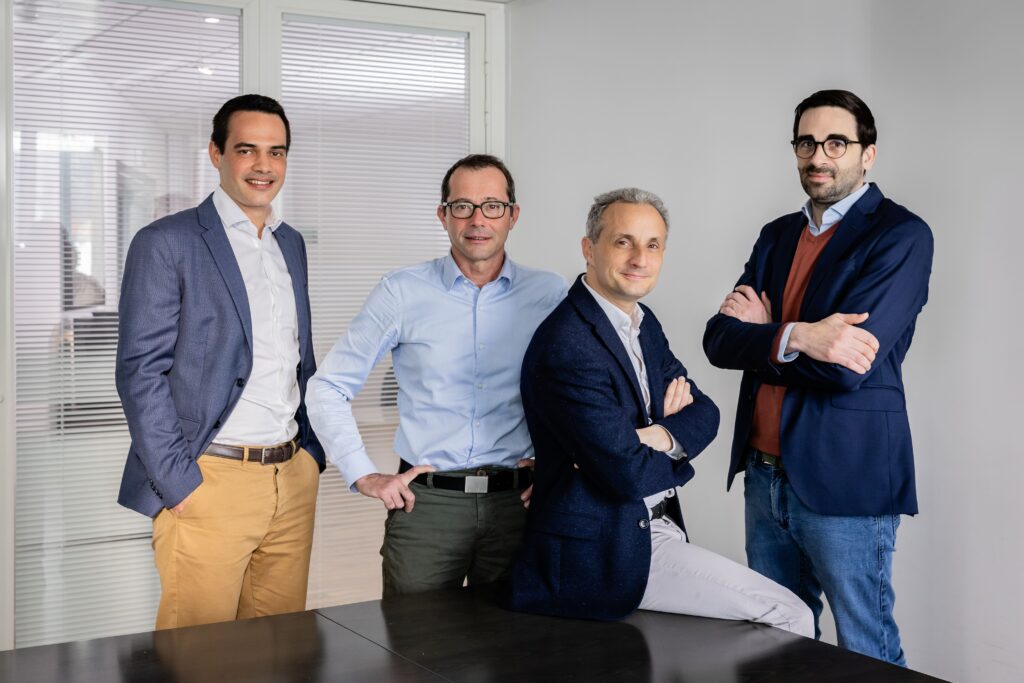Insider Brief
- The Department of Energy’s Oak Ridge National Laboratory promoted its Quantum Roadmap at the “Quantum on the Quad” event.
- ORNL’s Quantum Roadmap leverages the labs extensive experience in quantum research.
- The document is a culmination of over two decades of research and development in quantum science.
The Department of Energy’s Oak Ridge National Laboratory (ORNL) recently showcased its Quantum Roadmap at the “Quantum on the Quad” event, revealing its path toward quantum research and development. This strategic document is a culmination of over two decades of research and development in quantum science, aligning the lab’s substantial resources and expertise with the Department of Energy’s broader mission, according to a story on ORNL’s website.
The Quantum Roadmap leverages ORNL’s extensive experience in quantum research, including its workforce of more than 30 full-time quantum specialists and the Quantum Science Center. These resources are instrumental in exploring the practical applications of quantum mechanics, a field that promises revolutionary advancements in various sectors, from supercomputing to energy grid security.
The team discussed three significant funding awards at the event that underscore the lab’s position as a frontrunner in the quantum computing and networking domain.

One project, the Performance Integrated Quantum Scalable Internet (PiQSci), involves a collaboration with the University of Massachusetts-Amherst, University of Arizona, University of Texas at Austin, and Arizona State University. This project aims to develop a scalable quantum internet, enhancing network capacity and security while facilitating faster processing of substantial data volumes. PiQSci, receiving $6 million over three years, will capitalize on ORNL’s existing infrastructure, including its 300-kilometer “dark fiber” testbed—the longest in the national lab complex—supporting high-speed data transfer and dedicated quantum networking channels, according the the ORNL story.
Project lead and ORNL Corporate Fellow Nageswara Rao emphasized that a multidisciplinary approach is a key aspect of the PiQSci project.
“This project team provides the multidisciplinary expertise in theory and experiment needed to design and build the quantum networks enabled by our testbed with powerful quantum-conventional capabilities,” said Rao.
In parallel, ORNL is undertaking the Grid Research, Integration, and Deployment for Quantum (GRID-Q) project, funded with $3.75 million over three years. This initiative, supported by DOE’s Office of Electricity, Office of Fossil Energy and Carbon Management, and Office of Cybersecurity, Energy Security, and Emergency Response, aims to integrate quantum technologies into the power grid. Envisioned to enhance grid efficiency and security, GRID-Q involves collaborations with four other national labs, three academic institutions, and two industry partners.
Co-project lead and ORNL distinguished research scientist Warren Grice said the project’s goal is to transition quantum technologies from lab settings to practical grid applications, ensuring a resilient and secure power infrastructure.
“We believe that quantum technologies can help make the power grid more efficient and secure, and the GRID-Q project seeks to help move those technologies from the laboratory to the real world,” said Gricr.
Suman Debnath, also a co-lead, added that the project could help power grid experts comprehend and integrate quantum technologies.
Additionally, the AQUEDUCT (Assessment of Quantum Utility EvaluateD Under Current Technologies) project, backed by $1 million over four years, is set to develop benchmarks for quantum computing utility. With partners including the University of Tennessee, Knoxville, MITRE, Virginia Tech, and the University of Southern California, AQUEDUCT aims to bridge hardware noise characterization with application-level performance in quantum computing.
Kathleen Hamilton, project lead and ORNL staff member, noted that AQUEDUCT seeks to provide predictive metrics for assessing quantum computers’ utility in addressing contemporary and future computational challenges.
“The AQUEDUCT project addresses two rapidly developing areas of quantum computing: characterizing hardware noise at the component level and connecting the impact of this noise to application-level performance,” said Hamilton. “By bridging these twin research efforts, AQUEDUCT aims to develop predictive metrics for assessing the utility of quantum computers for today’s and tomorrow’s computational science challenges.”
Managed by UT-Battelle for DOE’s Office of Science, ORNL continues to spearhead research in the physical sciences. The Office of Science is committed to addressing some of the most pressing challenges of our time. For more information, visit https://energy.gov/science.
If you found this article to be informative, you can explore more current quantum news here, exclusives, interviews, and podcasts.
















